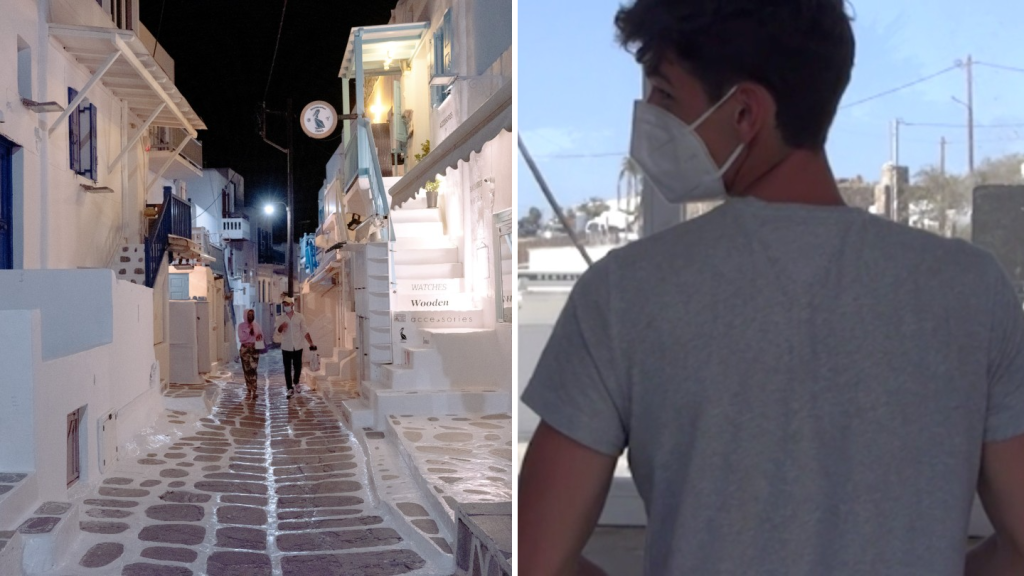Greeks have overwhelmingly agreed that they would rather face an uncertain future and potentially trigger a widely expected “Grexit” from the euro zone, rather than repay the country’s European creditors and face further austerity measures.
Even before the final referendum ballots were tallied Sunday, the results were clear. According to preliminary results from the Greek Interior Ministry, the “Oxi” (No) vote was on pace to receive 61 percent support and carry every voting region in the country. The outcome all but guaranteed the rejection of the rescue loan deal by drafted by the European Commission, the European Central Bank, and the International Monetary Fund (IMF).
Videos by VICE
“Today’s no is a big yes to a democratic Europe, and it strengthens the protection that Greece offers its people,” Greek Finance Minister Yanis Varoufakis said in a televised statement after the official results were announced.
Greek Prime Minister Alexis Tsipras said the outcome does not make a split with Europe imminent. “The mandate you’ve given me does not call for a break with Europe, but rather gives me greater negotiating strength,” he said in a televised statement.

The results of the Greek referendum with more than 90 percent of the votes counted on Sunday. (Image via Greek Interior Ministry)
Julia Kloeckner, the deputy of chief of German Chancellor Angela Merkel’s Christian Democratic Union party, rejected the notion that Tsipras could use the referendum to improve Greece’s bargaining power with Europe.
“It’s not only the will of the Greek people that counts, but also the citizens of other European countries,” Kloeckner said, according to AFP. “The EU is not a union where you can simply wish for whatever you want, where some members can individually determine the rules of play while the others pick up the tab.”
In the days leading up to the referendum, photos of Greeks lining up at ATMs flooded international media, as panic over a potential economic fallout mounted after the creditors’ last bailout package expired last Tuesday and Greece defaulted on its loans. On Sunday, those lines were joined by people filing into voting booths, with turnout peaking at just over 60 percent.
People crowded onto the streets of Athens on Sunday evening, clapping and dancing to revolutionary music. Ionississ, a lab technician watching the vote count on a big screen set up in the city’s Klafthmonos Square, declared his delight over the result.
“I want an independent country in the EU, but not this EU,” he told VICE News. “I don’t want my country as a debt colony.”
Related: These Young Greeks Think a ‘No’ Vote Could Ruin Everything

Supporters of the ‘No’ campaign celebrate after the first exit polls in Athens. (Photo by Armando Babani/EPA)
Tsipras’s left-wing Syriza party came to power six months ago as the country battled a six-year-long recession and strict austerity measures imposed by creditors from the 19-member euro zone. Elected on the promise of rolling back austerity measures, which have left the country in financial tatters, Tsipras’s administration has at times been accused by the radical left of walking back on that mandate during the months of negotiations, hardening stances on both sides and pushing Greece into a game of economic chicken with its creditors.
Members of the European Parliament, the Syriza party, and some investors have warned that the “no” vote over the weekend will almost certainly lead to Greece’s removal from the euro zone. This scenario would cause the creditors to lose billions in loans, and could throw international markets and Greece’s finances into chaos as the country moves to rapidly readopt its former currency.
‘I don’t want my country as a debt colony.’
The logistics of switching currencies from euro to drachmas could take months. During that time, payment of wages and pensions across the country could be interrupted, and a shortfall of readily available cash could plunge the country into further panic, as Greece has limited foreign reserves.
A complete government overhaul is also possible, with the Greeks, already exhausted by years of economic hardship and uncertainty, potentially calling for Tsipras’s resignation and holding fresh elections.
Related: ‘This Is Dignity?’: Confusion and Anger Reign on the Streets of Athens

A poster with a portrait of German Finance Minister Wolfgang Schaeuble is seen among supporters of the “No’ vote campaign after the first results of the referendum were announced in central Athens. (Photo by Kay Nietfeld/EPA)
Another option involves the creditors returning to negotiations for a fresh loan package, although some economists say that idea seems less likely than a few weeks ago. Since the latest deal expired last week, Greece has already suffered numerous ratings downgrades and lost access to billions of euros. Negotiations with creditors would now be even harder in light of the recent defaults.
Since the crisis began in 2008, Greece’s gross domestic product has shrunk by more than a quarter. More than 25 percent of the population is jobless, while youth unemployment has reached 60 percent.
The lion’s share of the country’s bailout cash has simply paid for debt service on its previous loans, so the government has been unable to make substantial investments in economic growth.
While some Greeks took to the streets late Sunday in elation over the “no” vote, the euro (sitting around $1.100) further deflated, slumping to around 0.7 percent against the US dollar based on early trading in Asia.
Follow Liz Fields on Twitter: @lianzifields
Andrew Connelly contributed reporting from Athens for VICE News
Watch the latest VICE News dispatch, Yes or No? Greece Again on the Brink: Greek Debt Crisis (Dispatch 1):



